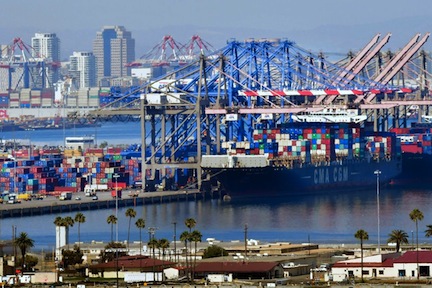(WASHINGTON) — The Trump administration is pushing to ease the rollout of new International Maritime Organization (IMO) rules to limit the sulfur content in marine fuels, fearing the measures will drive up costs for consumers and businesses, The Wall Street Journal reported.
The rules, set to take effect on Jan. 1, 2020, cap sulfur content at 0.5 percent. The International Energy Agency, which advises governments on energy policies, has warned that the new limit could cause a surge in demand for specific fuels that ripples across commodity markets and affects prices for crude, diesel and other petroleum products.
The White House said the administration is focused on the damage rising fuel costs might have on the economy, but some administration officials concede the timing of the implementation could have political implications in an election year.
“Few things terrify an American president more than a spike in fuel prices,” said Bob McNally, a former energy adviser to President George W. Bush. “If President Trump learns that IMO 2020 risks a big fuel oil-price spike in the winter of a presidential election, he is going to object.”
A spokesman said the White House isn’t seeking to withdraw from the IMO agreement, and declined to characterize administration plans as an effort to delay implementation. Instead, the shipping and energy markets may face less disruption if the rules were phased in in the name of “experience building,” he said.
Modifying the rollout will be difficult. The IMO — and its rule-making authority — is set by a congressionally ratified treaty. U.S. officials have yet to make any formal objections, and while they can “at any time … they can’t do anything to the 2020 implementation deadline,” a senior IMO official told The Journal.
Senior administration officials also have been hearing a wave of opposition to any delay in implementing the rules from U.S. refining and oil companies, typically political allies of Republicans who control the White House and Congress. While some smaller refiners may face challenges with costly improvements, most U.S. oil and gas companies and big refiners stand to be big winners from selling more higher-grade fuels.
Click here to read the story.

